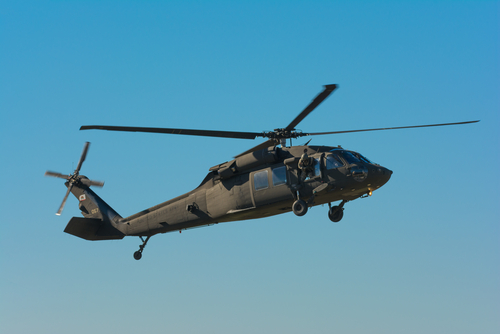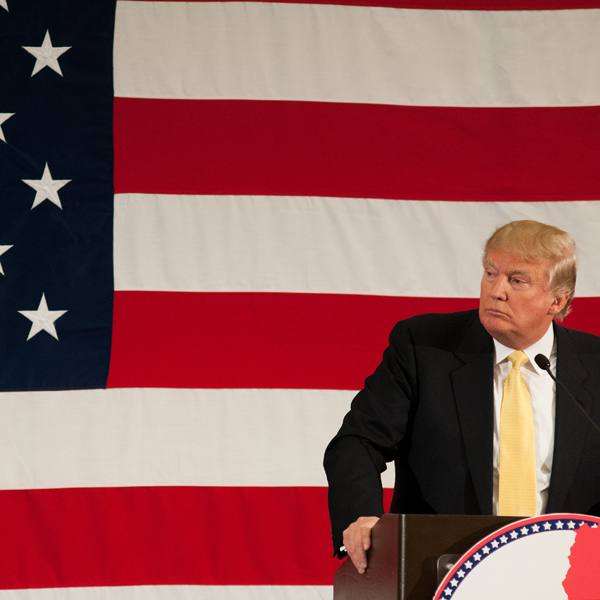Lawyer awarded $3.3M after crashing snowmobile into negligently parked Army helicopter

A federal judge in Massachusetts has awarded $3.3 million in damages to a lawyer for injuries suffered when he crashed his snowmobile into a camouflaged U.S. Army Black Hawk helicopter parked on a snowmobile trail at dusk. (Photo from Shutterstock)
A federal judge in Massachusetts has awarded $3.3 million in damages to a lawyer for injuries suffered when he crashed his snowmobile into a camouflaged U.S. Army Black Hawk helicopter parked on a snowmobile trail at dusk.
U.S. District Judge Mark G. Mastroianni of the District of Massachusetts awarded damages to Massachusetts lawyer Jeffrey Smith in a Sept. 23 decision following a bench trial.
The Associated Press and Fox News have coverage.
Mastroianni found that the government was 60% responsible for the 2019 incident because it failed “to take any steps to protect against the obvious risk” that it created from parking the helicopter in the spot. Smith was 40% responsible for speeding and wearing tinted goggles at night, the judge said.
Mastroianni came up with the $3.3 million figure after reducing damages to account for Smith’s comparative negligence and to account for a settlement reached with the landowner. The judge also awarded $100,000 to Smith’s son and $150,000 to his minor daughter.
Smith “suffered life-changing injuries” from the crash in Worthington, Massachusetts, Mastroianni said. He had multiple broken bones, a puncture to his left lung, herniated discs and neurological damage. A neurosurgeon had testified that Smith’s nerves had been “pulled clean out of the spinal cord itself,” making breathing difficult and essentially robbing him of the use of his left arm.
Smith’s law practice suffered because of limited stamina and pain. His net earnings were $134,394 in 2018, before the incident. In 2022, after the incident, he had a net loss of $5,671 because of increased paralegal hours.
The helicopter crew had flown from New York to Worthington for night training before deployment to Afghanistan. The chief warrant officer chose the location to replicate what the crew would see in Afghanistan. He also chose the location so that he could meet and socialize with a friend who lived in the town.
Write a letter to the editor, share a story tip or update, or report an error.



